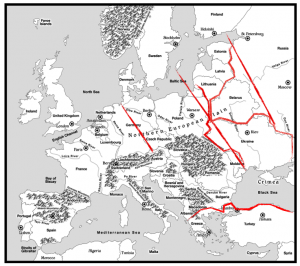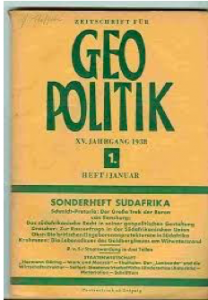Last week I had the pleasure of talking about geo-politics in two of Europe’s most fascinating cities with members of IESE Alumni association and their guests as part of a tour of a number of cities around the world.
What struck me most about the two sessions was the willingness of both the Russians and Germans to discuss relatively sensitive political issues.
Moscow
In Russia, Vladimir Putin and his administration dominate the political life of the country and his annexation of Crimea and support of Ukrainian seperatists in the East has effectively drawn a line on the Steppe. One of the issues I discussed with the group is how these moves may be explained by the process of NATO expansion which has unfolded since the 1950s and picked up pace after the re-unification of Germany.
NATO was founded by the U.S. and Canada together with the 10 European countries in essence to protect them from further Soviet expansion. Turkey and Greece were added in 1952 essentially blocking any expansion to the South.
In 1999, German reunification and the extension of membership to Poland, Hungary and the Czech Republic moved the “border” 500 miles East to the Polish Border.
Between 2004 and 2009, 9 additional countries joined including the Baltic States and much of the Balkans isolating Serbia and rolling back Russian expansion even further.
In this context, the protests in Kiev in 2014 could be understood as the final step in pushing Russia almost to the Borders that Peter the Great started off with when he waged war with Sweden back in the 1700s. That Putin would say enough is enough almost seems reasonable in this context despite the damage done to the Russian Economy as a result of the sanctions and counter sanctions which are still in place.
Another thing discussed in Moscow is what may happen if and when Putin finally steps down from Power either in 2024 when his current term expires or someday in the future.
Munich
With the Germans I discussed the geo-political issues of the day including the situation in Russia but also spent some time on the origins of geo-politics and the role of German scholars such as Freiderich Ratzel and Karl Haushofer.
Haushofer served in the Bavarian Army for more than 30 years before joining the Ludwig-Maximilian University at Munich where he taught geo-politics and a course called defense sciences. Haushofer also published a Journal of Geopolitics but never set up an Institute or had as much influence on Nazi foreign policy as he is credited for.
What does seem to be true is that he argued for Germany to recoup the territory it had lost as a result of the Treaty of Versailles and a prominent Nazi, Rudolf Hess, was one of his students. Haushofer had studied Halford Mackinder, another pioneer in the field, and favoured the Nazi pact with Bolshevik Russia. It seems he did meet Adolf Hitler but was not deeply involved in Nazi war planning.
Trump
 One major topic of discussion in both places was Donald Trump, his uncertain and worrying actions on the international stage and the possible collusion of Russia in his election. The news last night is that he FBI has raided Trump’s personal lawyer’s house and offices in their continuing investigation of that collusion and the possibility that the President has obstructed justice in trying to cover it up.
One major topic of discussion in both places was Donald Trump, his uncertain and worrying actions on the international stage and the possible collusion of Russia in his election. The news last night is that he FBI has raided Trump’s personal lawyer’s house and offices in their continuing investigation of that collusion and the possibility that the President has obstructed justice in trying to cover it up.
The purpose of these sessions is to call out how important it is for business people to study geo-politics and keep track of the issues which can affect their businesses. Getting into the issues does, however, require talking openly about sensitive topics and I it makes me glad that our graduates and friends can do so with intensity, rigour and respect
For me this experience only highlights Dean Heukamp’s idea that the Business School is a safe place where people can openly discuss their political ideas.



